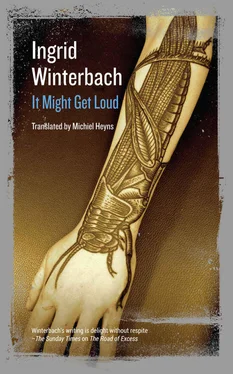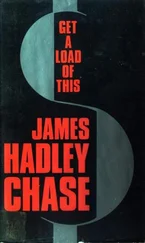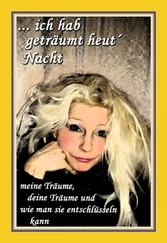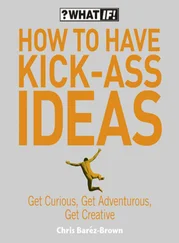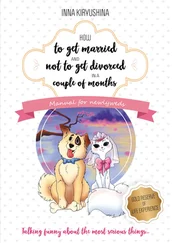*
Maria consults a therapist, because the beleaguering void refuses to dissipate. Sometimes her own voice sounds to her like a crow circling above a quarry: Cra-craaaw. Just as harsh and desolate. She doesn’t trust the expression in her eyes when she looks at herself in the mirror.
Your mother and your father, says the therapist. Maria nods and changes the subject. But the woman persists doggedly.
‘Do you want to tell me something about your mother?’ she asks.
Maria doesn’t really want to. Thoughts of her mother are incoherent. She can’t marshal them. She can’t encapsulate her mother in a few sentences.
‘My mother was extremely adept at figures,’ she says. ‘She should have had a proper professional career. She was remarkably level-headed, balanced. Perhaps emotionally a bit remote.’
‘Anything else?’ asks the woman.
‘I had a dream about her when I was very small. She had the paws of an animal and the head and upper body of a woman. She was lying in a cage. A sort of wire cage.’
‘And what does this image of your mother remind you of?’
Maria reflects. ‘Something like a sphinx, perhaps? Maybe even a harpy.’
‘And the sphinx?’
‘Something, somebody who knows a riddle.’
‘And the harpy?’
‘Something cruel. Mythical.’
‘Is that how you experienced her, as cruel towards you?’
‘No.’
‘Do you think your mother hid something important from you?’
Maria doesn’t know. She doesn’t think so. Her mother did not talk about herself much.
‘And who is protected by the cage, you or your mother?”
Maria couldn’t say.
‘Any other dreams from this time?’
‘No.’
The therapist doesn’t look convinced, but Maria feels herself jibbing. Horse to water.
‘Any other dreams later, from your youth?’
‘Nothing that I can remember.’ The therapist still looks unconvinced, but leaves it there.
‘Do you want to tell me something about your father?’
Equally difficult to summarise her father in a few sentences.
‘He liked unspoilt nature. He should have travelled, discovered places, sailed with Magellan to Africa and the East Indies, but instead he planted roses and fruit trees in our suburban garden. He knew the names of exotic places. He recited them for my sister and me. Almost like poetry. Huang-He. Popocatépetl.’
‘Any memories of the birth of your sister?’
‘I found her ugly.’
*
Before going overseas for the first time, Maria asked her sister, Sofie, what she should bring back for her. She was twenty-three. Sofie was twenty. I hate you, Sofie told Maria; I envy you the opportunity to go overseas. I’m a failure. If you look into my eyes, you’ll see FAILURE written in black on the whites of both my eyes. Maria looked involuntarily. You’re silly, she said. Mark my words, Sofie said.
Sofie thought long and hard about what she wanted. I’ll let you know, she said. Maria received a letter from Sofie in Florence. (She picked up her post from American Express every day.) I have considered various possibilities, Sofie wrote, but now I know what I want. Bring me a knight’s suit of armour, that is what I want. I want a knight’s panoply, so that I can stride lurching and clattering through the house on my rigid, hinged limbs. Oh, the weight of it makes me lightheaded with ecstasy! Especially the iron feet with spurred heels and spiked toes — just think of the possibilities for the Charleston! Oh, the jointedness — the articulated, arthropodous sensation of it. You can do it, she wrote to Maria, you can filch it away piece by piece, segment by segment, link by link from some collection. Just think of the visor in front of the face, think how one can peep from behind it. It can be flapped open and closed (sister has her own night club, no admission, members only, or she’ll snap off your snout with her iron mandible). Jokes apart, Sofie concluded, in earnest (‘the importance of being earnest’), buy me Clarissa by Samuel Richardson.
At this time Sofie started writing her first poems. She worked part-time in a bookshop in town. She read Thucydides.
In Florence Maria had a short-lived fling with a beautiful little Greek. He was almost a head shorter than she. In the throes of love he would whisper ardent Greek phrases in her ear. He gave her a photo of himself. He’s wearing a bathing costume and holding a rod with an eel dangling from it.
Maria received a second note from Sofie in Rome. Will you still know me, Sofie wrote, when you return with your broadened horizons and your new, kinetic hands? I’m going to bequeath you my hands, Sofie wrote, up to the wrists, so that you can be my hands on earth when I am dead.
*
‘Your mother and your father,’ says the therapist, ‘I have a feeling that they both suffered profound disappointment. Your sister, I have a feeling that there is much in your relations with her that you are not prepared to subject to scrutiny. Do you feel that there are things left unsaid; feelings perhaps not expressed before her death?’
This she can no longer deal with.
‘Goodbye,’ says Maria Volschenk.
*
The therapist suggests that she should take an antidepressant for a while. She refers Maria to a psychiatrist. He wants to show her a model of a brain to indicate the location of the seat of the emotions. (Like the professor of biological psychiatry who fished half a brain out of a bucket.) She does not want to see it, because she does not want to be reminded that the seat of consciousness is a mass of whitish-grey material.
She is not interested in his chatter. He has hairy knuckles and small teeth and even though he has a solid reputation and an empathetic aura, his advice sounds suspiciously like kitchen psychology. All that she requires from him is to write her a prescription for medication. She takes the medicine and waits a fortnight for it to kick in — as the psychiatrist said. She tests herself by cautiously listening to music again, but still nothing claims her attention. Even music that she used to be passionate about. She waits another week, but her condition remains unchanged. One evening she’s playing Draw Poker with Susanna Croucamp and the married couple. She puts a much larger than usual amount on the table. The others regard her quizzically. To her it’s immaterial whether she wins or loses. Money has long since ceased to be an object. What’s wrong? Susanna asks her covertly. I don’t know, says Maria.
After a month she still finds no great savour in anything, but the feeling of a beleaguering void, a feeling verging on pain, is less severe. Her emotions are now more shallow, more flat, more equable.
*
When neither the therapy, nor the medication, nor the various lecture series that she attends bring any relief, Maria Volschenk decides that she’s going about her situation in the wrong way. She must start from a different point. There is a task that she must first complete. Call it a task, call it a stumbling block to be overcome, call it something she’s been averse to for a long time. She buys an air ticket. She locks up her home. She asks Joy Parks, who rents the garden flat under the house: Please keep an eye on everything here. Bring in the post every day.
She flies to Cape Town. She doesn’t let Benjy know that she’s in town. She takes his word for it that he’s okay. She hires a car and drives to Stellenbosch. Over the horizon the mountain ranges appear: familiar and yet so remote. She checks into a guest house. The bedroom reminds her of existentialist movies from the sixties: Robbe-Grillet movies, in which an alienated individual goes on a journey, arrives in a room with drawn blinds, sits down on the bed and lights a cigarette. That afternoon she lies on the bed listening to children in a swimming pool at the house next door.
Читать дальше
